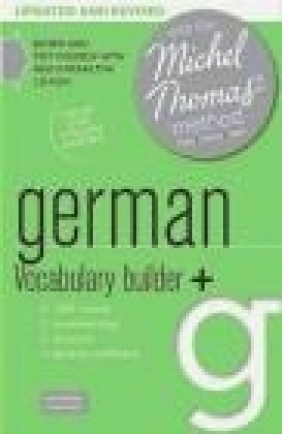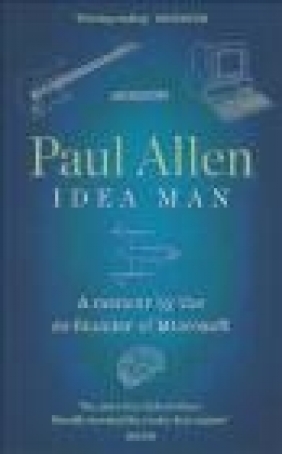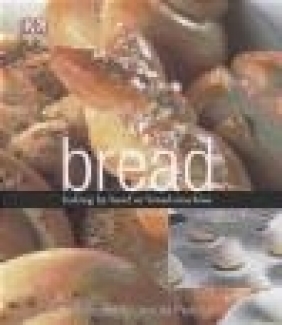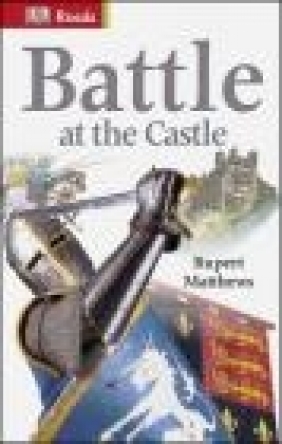German Vocabulary Builder+ with the Michel Thomas Method
Marion O'Dowd
German Vocabulary Builder+ with the Michel Thomas Method
Marion O'Dowd
- Producent: Hodder Education
- Rok produkcji: 2013
- ISBN: 9781444197617
- Oprawa: brak formatu
Niedostępna
Opis: German Vocabulary Builder+ with the Michel Thomas Method - Marion O'Dowd
Experience significant results in a remarkably short period of time - without books, drills, memorizing, or homework. In this four-hour intermediate level audio course Michel Thomas Method teacher Marion O'Dowd introduces over 1,000 new words, verbs and everyday phrases through essential language building blocks which allow you to increase your vocabulary in manageable, enjoyable steps by thinking out answers for yourself. What's the added plus? Unlike most vocabulary courses which give you lists of words to memorise, the Michel Thomas Method based Vocabulary Builder+ allows you to further extend your vocabulary by unlocking what you already know. Focusing on the similarities and differences between German and English, you will gain the tools and strategies to exponentially build up your vocabulary. Who is this course for? Whether you have learned from other Michel Thomas courses or are simply looking for a new approach to help improve your proficiency, the German Vocabulary Builder+ will introduce you to a unique way of acquiring language that will significantly boost your confidence in your ability to speak, listen to, pronounce and understand German.Introduction: How this course came about, what it does and does not include, how it works, and how it is both faithful to and expands upon the Michel Thomas Language Courses Course segment 1: Cognates 1. (CD 1, track 1) * Introduction (CD 1, track 2) * Anglo-Saxon influence t > d, t > th * Cognate examples: Bett-Brot-Butter-tanzen-Durst-danken; animals; hundred thousand; parts of the body 2. (CD 1, track 3) * -ieren verbs: reservieren; servieren etc. * Anglo-Saxon influence p > b * das the - ein a * Word order: mochte sends the full verb to the end of the sentence * Hotel vocabulary: drinnen inside; draussen outside; Fruhstuck breakfast; Mittagessen lunch; Abendessen dinner 3. (CD 1, track 4) * Kaffee und Kuchen tea-time * vorbei^kommen to come by 4. (CD 1, track 4) * More -ieren verbs: transportieren; reduzieren etc. * Adjectives - standing alone: ausgezeichnet excellent; dunkel dark; hell light * Agreement of adjectives: es for neuter singular: ausgezeichnetes Bier; e for plural: gute Autos * Vocabulary: Produkte, Waren 5. (CD1, track 5) * Winter/summer sports vocabulary: trainieren * Word order: promoting an item to the head of the sentence for emphasis * Es macht Spass! It's fun! 6. (CD 1, track 5) * Kinds of sport: Sportarten * Masculine and feminine endings for professions: Sportler, Sportlerin 7. (CD 1, track 6) * More -ieren verbs: respektieren respect; sich konzentrieren concentrate * Word-joining: Sprachregeln language rules * Polite Sie command form: Respektieren Sie! * um ... zu (+ infinitive) in order to ... * Possessive adjectival agreement: meine (fem.) - meine Reise * Past Tense of -ieren verbs: -iert ending: organisiert * Contractions: daran-damit-darauf: reagieren darauf react to it * dass that triggers a 'weil situation' 8. (CD 1, track 7) * Nouns made from verbs: das Leben life; das Essen eating/food * Whilst ... -ing: Beim Studieren whilst studying * Zum Geburtstag gratulieren wishing someone happy birthday * Ihnen (polite to you) and dir (informal to you) 9. (CD 1, track 8) * Irregular non-cognate -ieren verbs: verlieren lose; spazieren gehen go for a walk; passieren happen * Wie schrecklich! How terrible! Wie argerlich! How annoying! Wie dumm! How stupid! 10. (CD 1, track 9) * Nouns with -tat endings (pl. -taten) correspond to -ity: Elektrizitat electricity * im in the = masculine/neuter for 'static situation': im Zimmer * General house vocabulary * unter^nehmen to undertake * Was fur? What sort of? 11. (CD 1, track 10) * Time-Manner-Place rule (TEMP) Wann? When; Wie? How?; Wo?; Where?; Wohin? Where to? * Was gibt's zu tun hier? What is there to do here? 12. (CD 1, track 11) * Ich schlage vor, dass ... I suggest that ... * lieber rather, preferably * ins into the - movement into a place: ins Theater 13. (CD 1, track 12) * More -tat words: Universitat; Spezialitat; etc. * Pronouncing z and st sounds * es gibt + zu + verb there is/there are ... to do * Word order: Inversion after dort: Dort gibt es ... * einmalig unique; ein Mal once * Mensch/Menschen man/humanity; Leute people * besitzen to own/possess 14. (CD 1, track 13) * 'Belonging situation': die (singular and plural) changes to der of the * The common -artig ending meaning like: grossartig superb 15. (CD 1, track 13) * More -tat words and adjectives within those words: kreativ; aktiv; etc. (CD 2, track 1) * Erfolgreich successful; heutzutage nowadays * Word order: denn for/because does not affect word order 16. (CD 2, track 2) * -keit/heit words correspond to ity/ness/hood: Moglichkeit possibility; Gelegenheit opportunity * Sehenswurdigkeiten sights (sights worth seeing): Brandenburger Tor/Berliner Mauer (CD 2, track 3) * -keit words based on adjectives: heiter > Heiterkeit etc. * -fahig = -able. -bar ending = -ful: dankbar > grateful * Words based on drucken: (sich) aus^drucken express (oneself); der Ausdruck expression; der Eindruck impression; beeindrucken impress * More -keit words formed from adjectives: Kleinigkeit a little something etc. 17. (CD 2, track 4) * More -heit nouns: Gesundheit health; Krankheit illness * gegen against * an^ziehen to put on and an^schnallen to strap in * Forming opposites: glucklich/unglucklich happy/unhappy * Wie die Zeit vergeht How time flies; die Vergangenheit the past 18. (CD 2, track 5) * Feminine die words: -ung; -tat; -heit; -keit * Forming nouns from verbs: melden announce > Meldung announcement etc. * um around; uber over; wegen due to * dieses this: dieses Museum * nach according to; Meiner Meinung nach in my opinion * Selbst words: Selbstbedienung self-service etc. 19. (CD 2, track 6) * Word-building using teil part * Lebensmittel (the) means to live * reinigen to clean; verschmutzen pollute; Umweltverschmutzung environmental pollution 20. (CD 2, track 7) * Affinity between die words ending in -schaft and ship: Freundschaft > friendship etc. * Ihre (feminine ending) = (polite) your 21. (CD 2, track 8) * Endings: -voll -full; -los -less: liebevoll loving; humorlos without humour * wenn triggers a 'weil situation' 22. (CD 2, track 9) * Ending -ell sometimes corresponds to -al: formell formal * False friends: eventuell possibly; aktuell current * Ending isch > ish, ic, ical: kindisch childish; praktisch practical; dynamisch dynamic Course segment 2: Verbs 1. (CD 2, track 10) * Review of en and n verbs: schicken send; brauchen need; tun do; sein be * Handles: wollen, sollen, konnen, mussen * einkaufen gehen to go shopping * Link-word: da as/because 2. (CD 2, track 11) * Regular 'good guys': Present Tense with schreiben an to write to * Feminine e ending - plural en (e.g. die Rose) Exceptions: der Junge, der Kase, der Name, das Ende * schenken - stecken - brauchen - erscheinen * Polite command form Sie: Stecken Sie ... Put ... ! * Ihre your * nachstes next; letztes last; jedes every; dieses this; Wochenende weekend * Present Tense can indicate action in near future 3. (CD 3, track 1) * gerade in the process of ... * mein(e), sein(e), ihr(e), Ihr(e) with examples using auf^schreiben, beschreiben, lieben, tanzen, ... hat...gebrochen ... has broken ... * Difference between kennen and wissen 4. (CD 3, track 2) * du form in the Present Tense: Wann kommst du an?; Wie lange bleibst du?; Bringst du mir etwas mit? 5. (CD 3, track 3) * Irregular 'bad guys': three groups (only irregular in du, er, sie, es form) * Group 1: Adding an i before the e: lesen, empfehlen, sehen, aus^sehen, sich an^sehen * hubscher als (prettier than) 6. (CD 3, track 4) * Group 2: Adding an Umlaut a > a: fahren * mit dem Auto, Zug, Schiff, Bus, Flugzeug, Rad * Zeug, Flugzeug, Fahrzeug, Spielzeug, Werkzeug, Waschzeug * wie like * zur + feminine words, zum + masculine/neuter words * Separable verbs: ab^fahren, weg^fahren, los^fahren to drive off * fangen to catch; anfangen to start and wenn if and wann? When? * ein^schlafen fall asleep: Word order: Wenn das Theaterstuck zu lang ist, schlafst du ein (CD 3, track 5) * fallen fall; laufen run: Wenn du ... laufst, fallst du hin * eine Rede halten give a speech; einladen invite: Wenn du ... haltst, ladt er dich ein. * tragen wear and clothes 7. (CD 3, track 6) * Group 3: e changes to i: helfen to help * Schmerzen pains: Kopf, Rucken, Magen, Hals, Zahnschmerzen and gegen against * Es tut mir weh! It hurts! * Informal command: Hilf mir! * los^werden to get rid of * zum Arzt, zum Zahnarzt, zur Apotheke (CD 3, track 7) * werden to become and professions * Let's ... command form: Hoffen wir ... * Wo? Where?; Dort! There!; Wohin? Where to?; Dorthin! To there! (CD 3, track 8) * essen eat; fressen eat (for animals); vergessen forget: Vergiss nicht! Don't forget! * sprechen uber to
Szczegóły: German Vocabulary Builder+ with the Michel Thomas Method - Marion O'Dowd
Tytuł: German Vocabulary Builder+ with the Michel Thomas Method
Autor: Marion O'Dowd
Producent: Hodder Education
ISBN: 9781444197617
Rok produkcji: 2013
Oprawa: brak formatu
Waga: 0.19 kg

































